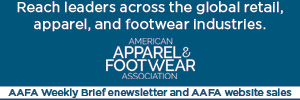November 21: ... The U.S. negotiators have demanded a slew of concessions they say are necessary to improve what the president has called "the worst trade deal ever made," and Trump has threatened to walk away from NAFTA if the demands aren’t met. But multilateral trade deals are usually more about mutually painful compromises than my-way-or-the-highway tactics, and free traders point to TPP as evidence that countries that leave the table tend to get added to the menu. ( Source: Politico)
|
November 19: ... Secretary of Commerce Wilbur Ross discussed what revamped trade policies could mean for the U.S. and its trading partners ... [According to Secretary Ross,] "one of the things we hope will come out of Nafta, even though it’s a trilateral rather than a bilateral, is some language that we can roll out in other agreements." ... "We’re using trade deficit as a shorthand way of saying job creation. Job creation is the real purpose of reducing the trade deficit, and it’s why the way we mainly wish to reduce the deficit is by increasing our exports as opposed to constricting imports." ( Source: Wall Street Journal)
|
November 19: You won't see him on cable news, but President Trump's hardline trade negotiator Robert Lighthizer is wielding extraordinary — and growing — influence inside the White House. ... Lighthizer makes the pro-trade community nervous. He agrees with Trump that the mounting trade deficits with China are unacceptable. And he's staking out such hardline negotiating positions with South Korea (on the KORUS trade deal) and Canada and Mexico (on NAFTA) that top Republicans on the Hill and in Washington's business community fear he will torpedo both deals. ( Source: Axios)
|
November 19: Senator Ron Johnson is a conservative Republican from Wisconsin, a trained accountant, and the founder of a family-owned manufacturing business. Unexpectedly, he is also the first Republican lawmaker to say he won’t vote for the senate’s tax bill as currently written. His complaint is that small businesses in the US don’t get enough of a break, while big multinational companies would reap enormous benefits. ... At issue is how people who operate businesses as "pass-through entities"—that is, they pass their business income on to their individual income tax return—should be taxed. ( Source: Quartz)
|


November 16: Businesses striving to stamp out slavery from their supply chains should not dismiss struggling suppliers but train them to improve the lives of workers, and technology can play a part, leading companies including Apple and Walmart said on Wednesday. In recent years modern-day slavery has increasingly come under the global spotlight, putting ever greater regulatory and consumer pressure on firms to ensure their supply chains are free of forced labor, child labor and other forms of slavery. ( Source: Reuters)
|
November 16: ... To this day, pajamas for kids age 9 months through size 14 must be flame resistant or fit snugly. (Clothes for younger babies do not have to be flame resistant, because at that age children are not mobile enough to expose themselves to an open flame.) So how do manufacturers meet that requirement now? Are they substituting some other, mystery chemical to make children’s pajamas flame retardant? ( Source: Washington Post)
|
November 16: The Alliance for Bangladesh Worker Safety seems to be keeping good on its word that the majority of the factory remediation efforts it’s overseeing will be done before its time in Bangladesh is up. In its fourth annual report released Wednesday, the Alliance said 85 percent of all required factory repairs have been completed. ( Source: Sourcing Journal - article unlocked)
|
November 20: According to the [new WIPO report "World Intellectual Property Report 2017: Intangible Capital in Global Value Chains"], nearly one third of the value of manufactured products sold globally comes from intangible capital, contributing twice as much as buildings, machinery and other forms of tangible capital to the total value of manufactured goods. Food products, motor vehicles and textiles account for nearly 50% of the total income generated by intangible capital in the manufacturing global value chains, it added. ... One of the report’s case studies looked at the market for smartphones, where firms rely heavily on patents, trademarks and industrial designs ... ( Source: World IP Review)
|
November 16: Dubai is indisputably the luxury goods center of the Middle East. The burgeoning market – which boasts upscale malls and its own version of Fashion Week – is not without its setbacks, namely, a plentiful supply of counterfeit goods. In 2017, alone, more than Dh280 million ($72.2 million) in counterfeit goods were taken off the streets of Dubai as authorities continue in their attempts to tackle a global trade that damages legitimate businesses and fuels organized crime and terrorism. ( Source: The Fashion Law)
|
November 16: On the day news broke that Alibaba co-founder Joe Tsai was purchasing 49 percent of the Brooklyn Nets NBA franchise, plenty of the team’s gear was available on his company’s shopping sites. The problem is that many of those items were counterfeit, Recode found after reviewing listings on Alibaba’s Taobao shopping site on that October day as well as on Singles Day, China’s massive online shopping holiday on Nov. 11. (Source: Recode)
|


In Brief
NAFTA negotiations continue: Today marks the end of the fifth round of negotiations regarding modernization of the North American Free Trade Agreement (NAFTA). AAFA’s Executive Vice President Steve Lamar represented the industry in Mexico City, meeting with stakeholders and negotiators to push for a successful outcome for textile, apparel, and footwear companies. Additionally, AAFA submitted a statement to the Senate Finance Committee in conjunction with a field hearing of its Trade Subcommittee on NAFTA. The hearing was the first that the Committee (or any of its Subcommittees) has held since the talks began.
AAFA continues to ask members to visit our Legislative Action Center to send an email letter communicating support for a modernized NAFTA that functions for our industry – it takes just a few minutes. Any members with questions can contact Steve Lamar and Nate Herman. The Administration is hoping to conclude talks by the end of March 2018.
Holding international institutions accountable: Last week, AAFA joined the 26 other industry associations that comprise the EAGL Coalition in applauding the Senate Foreign Relations Committee’s unanimous approval of the Multilateral Aid Review Act of 2017. The legislation would improve the accountability and effectiveness of select international institutions.
Next week in NYC: Next week, AAFA heads to NYC to for our Fall 2017 Environmental Committee and Social Responsibility Committee meetings. Many thanks to AAFA member Infor for hosting the meetings. For questions on how to get involved in either committee, contact Nate Herman or Kristen Kern. AAFA will also be attending the Two Ten Footwear Foundation Annual VIP Dinner & Gala on November 29 to help honor the footwear community and support the Two Ten mission. We look forward to visiting with AAFA members at all of these events.
Happy Thanksgiving! As we head into the Thanksgiving holiday, we’d like to take a moment to thank all AAFA members and all of our readers for your support.
See all of AAFA’s latest letters, comments, and testimony here.
Congress and government agencies solicit comments on a range of issues that may affect your business – find a list of comment opportunities here.
|
|
November & December
December 6 Webinar: Moisture Management with Performance Fabrics
December 11 Webinar: Trade Policy in 2017 - Is the U.S. Getting Left Behind?
Visit our events calendar for all AAFA webinars and industry events.
|
Feb 28 - March 2 | Washington, D.C.
|
|
|
| |
|

